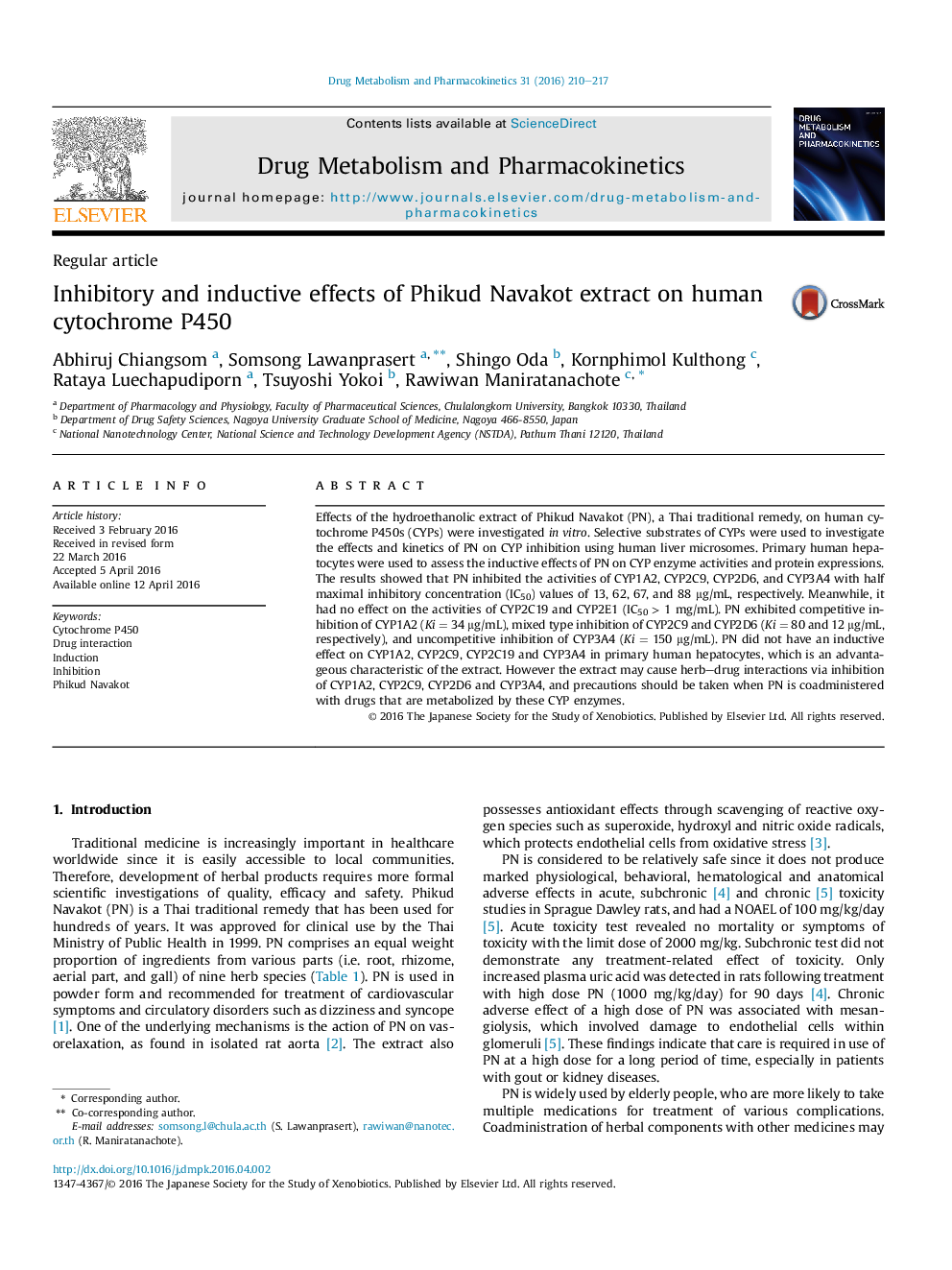| Article ID | Journal | Published Year | Pages | File Type |
|---|---|---|---|---|
| 5807419 | Drug Metabolism and Pharmacokinetics | 2016 | 8 Pages |
Effects of the hydroethanolic extract of Phikud Navakot (PN), a Thai traditional remedy, on human cytochrome P450s (CYPs) were investigated in vitro. Selective substrates of CYPs were used to investigate the effects and kinetics of PN on CYP inhibition using human liver microsomes. Primary human hepatocytes were used to assess the inductive effects of PN on CYP enzyme activities and protein expressions. The results showed that PN inhibited the activities of CYP1A2, CYP2C9, CYP2D6, and CYP3A4 with half maximal inhibitory concentration (IC50) values of 13, 62, 67, and 88 μg/mL, respectively. Meanwhile, it had no effect on the activities of CYP2C19 and CYP2E1 (IC50 > 1 mg/mL). PN exhibited competitive inhibition of CYP1A2 (Ki = 34 μg/mL), mixed type inhibition of CYP2C9 and CYP2D6 (Ki = 80 and 12 μg/mL, respectively), and uncompetitive inhibition of CYP3A4 (Ki = 150 μg/mL). PN did not have an inductive effect on CYP1A2, CYP2C9, CYP2C19 and CYP3A4 in primary human hepatocytes, which is an advantageous characteristic of the extract. However the extract may cause herb-drug interactions via inhibition of CYP1A2, CYP2C9, CYP2D6 and CYP3A4, and precautions should be taken when PN is coadministered with drugs that are metabolized by these CYP enzymes.
